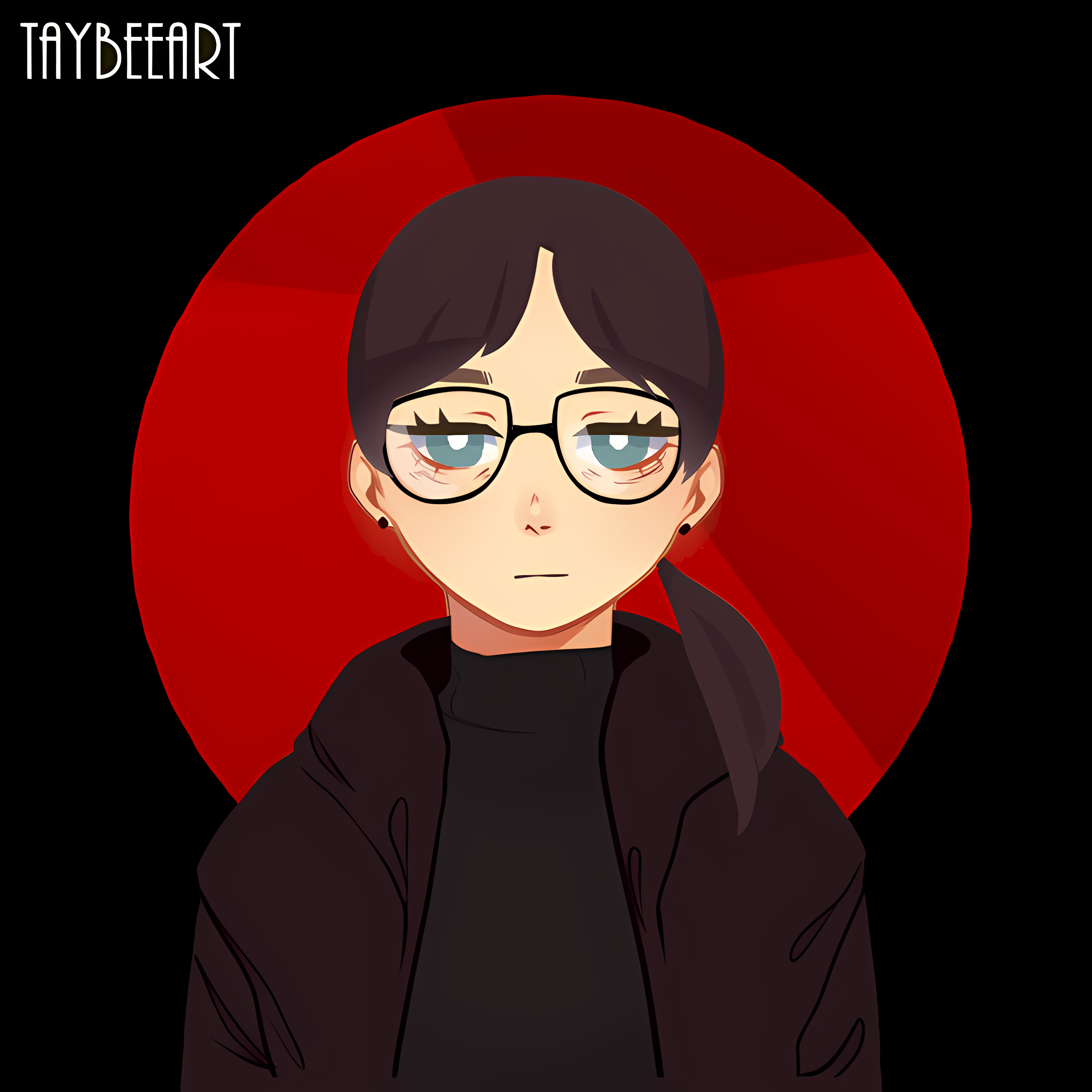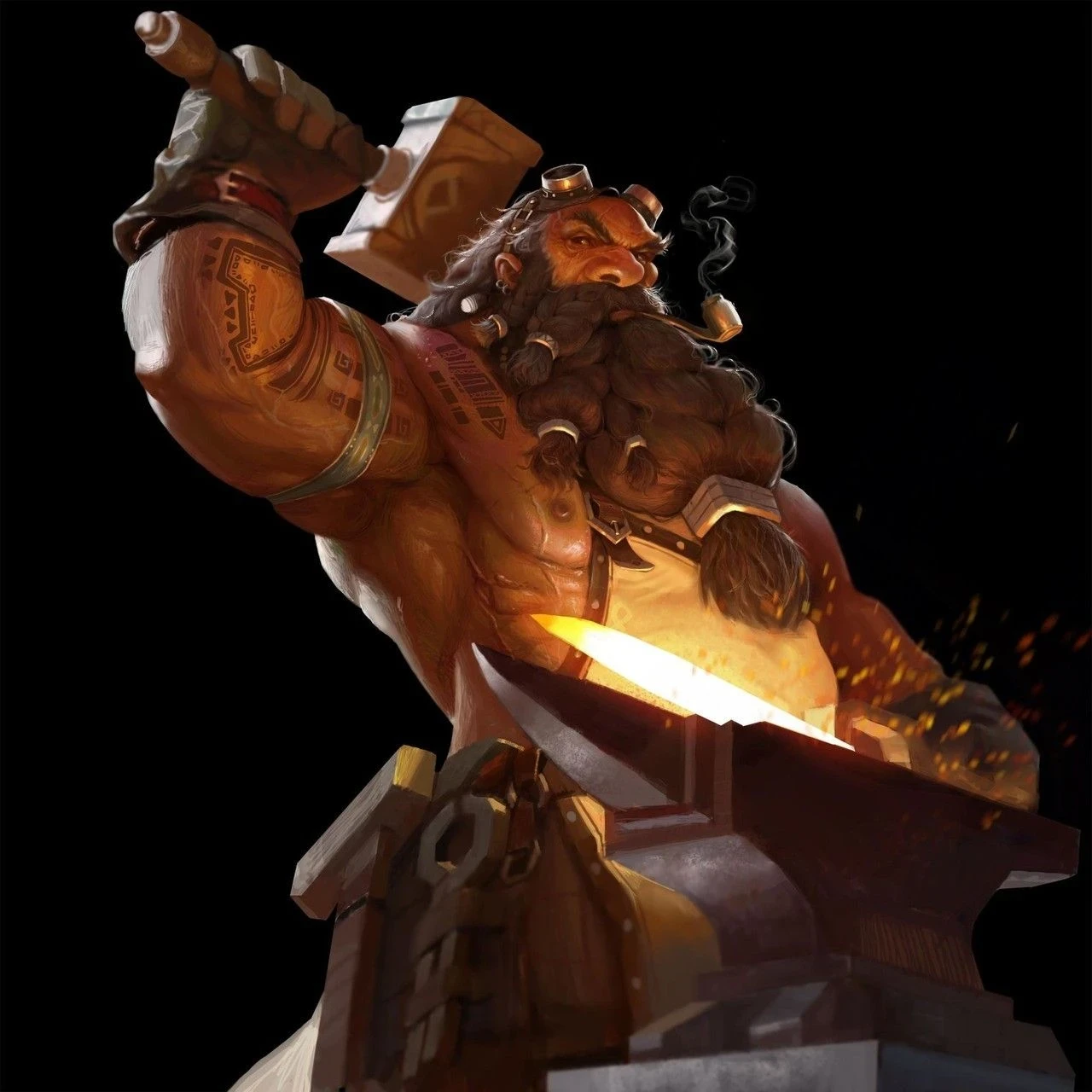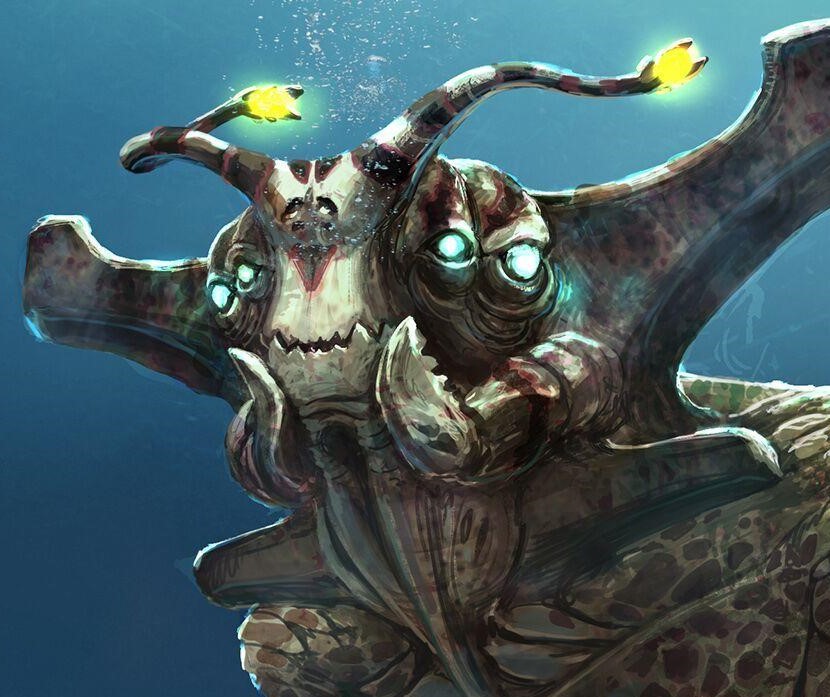There are mods and cheats for this game already—and they even run on Linux. I turn 50 next month: though I’m still playing, I don’t have as much time for gaming as I used to and my reflexes aren’t what they were. I haven’t entirely removed the challenge with mods, but I feel no shame in tweaking this game to go easier on me and chew up less of my time as punishment for failure. I wish they had these as accessibility options built-in, but I’m fine with hacking it.
Anybody telling me I should “git gud” can pound sand: I’m already good at a bunch of things that get me a paycheck. I play games so I can relax and be terrible at something for fun. I’m certainly not playing for bragging rights.
In this thread: people complaining who are apparently bad at game mechanics and can’t or won’t learn to improve.
Just beat Widow second attempt.
The run back has you start on one screen, traverse two screens, and done. I got as high as 12 Mississippi counting during it.
If you’re not able to commit to learning new strategies and using game mechanics to adapt to a game’s difficulty, and experience it as the developers intended, maybe it’s not for you. You can always watch a lore video or let’s play by other gamers to get the story if that’s the goal. This is Dark Souls 2 all over again, and I will personally say as someone who initially hated it, then gave it another chance; When you persist and triumph through grit, the game leaves a lasting impression and sense of accomplishment that you cheat yourself out of with a difficulty slider. That’s my favorite game in the series now, which is a deeply unpopular opinion, unsurprisingly.
This debate pops up every now and then and my opinion remains the same, there are plenty of games that aren’t meant to be a challenge to choose from. Part of games that are built to be a challenge is being able to reflect on how far you grew in the process, and people hate to hear it but ‘git gud’ is a real thing for those who believe things worth doing are hard.
I personally think Outer Wilds should give you the whole lore as an audiobook, not everyone wants to go hunting for clues and reading a bunch of old conversations between dead people in order to figure out what’s going on…
Regarding difficulty: I’ve lived through the 80’s, where difficulty was ramped up to make the game last longer, as you only had precious few kilobytes to fill with content. I’ve grown to hate difficult games.
It is your right as creator to go that way if you wish, but it is my right as player to hate your guts if I buy your game and it kills me over and over again in the first minutes.
Another 80s child here. The difficulty of ganes of that era was to extend tge game duration and made them seem longer. They were designed that way to eat quarters at the arcade, the original “games as a service”. What happened with home computer and console games at the time was that developers used the same paradigms for “buy to own” games that they used for arcade, thus the idea of limited lives, game over screens, high dificulty, etc.
If you dislike impressionist art, would you still go to a museum exhibition on that topic and then get angry at the curators?
If it is clear that the topic is Impressionist art, I would not go. If I buy the ticket to see Expressionism and get Impressionism instead, I would fell upset.
(Actually, I’d go either way, I love art)
I don’t mind difficult games. I recognise that they exist as a kind of pushback against mobile games and casual games that have risen in popularity. I don’t mind that they exist. Likewise, I strongly believe that gaming is for everybody, but not every game has to be for everybody.
I think it’s perfectly fine, though, to ask the question: if the game — any hard game, to include the Dark Souls game and its spinoffs (e.g. Elden Ring) and knockoffs (e.g. Breath of the Wild) — had an easy mode, where virtually anyone could win it eventually, would that truly make the game less fun for people who like hard games? What if the game were hard by default, and easy mode cost $5 extra? That way, you would never be presented with the option, but those who want it can get it for a slight upcharge. (Maybe less on a $20 game, I’m thinking the $5 would be for a $70 game.) Case in point: Final Fantasy XV was never hard. But for 49¢, you could buy a “DLC”/“mod” that made gas cost half — 5 gil instead of 10 for any fill-up — and also made hotels (which give a big XP buff) half price. So one early-game strategy was equipping a ring that would not pay out experience when you camp, and saving your XP (which is normally paid out every time you sleep) until you could afford a room at the XP-doubling Galden Quay resort hotel, gaining you several levels by then. With the DLC/mod, you could afford it much sooner, and you could actually do it a few times, setting you up for later parts of the game. It wasn’t an easy mode, but it did soften the grind a bit, and it wasn’t presented as an option in the game. You kinda had to know about it and go look for it.
I actually think there’s something to that. Making a game and selling parts of it never really goes down well with players. But most players can’t beat hard games. So what if instead of new games being $70 or $80, they were $50 or $60 still, but people who want help can buy things that will make the game easier. Let those players subsidize the ones who are good enough to beat it without them, incentivising them to get better. Ideally, to get better at that game so they uninstall the helpers, beat it without them, then when the next one comes out, they’re ready.
I don’t hate hard games. But I’m not going to pay for them. If they make their money off people who have that much time on their hands, that’s fine. It’s a sound business decision. But I also think a game can’t say “we wish we made more money” while intentionally excluding players who maybe have full-time jobs, families, or other valid reasons to not learn the perfect button combinations and ultra-precise timing some of these games require. I think if they could find a way to include those players while not putting off their base, they’d have a winning solution on their hands. And no, we’re not gonna quit our jobs or neglect our families to “git gud” like we live with our parents and are half our age.
I don’t mind difficult games. I recognise that they exist as a kind of pushback against mobile games and casual games that have risen in popularity
You got that backwards: difficult games are as old as arcades. If anything, casual games exist as pushback against difficult games, not the other way around.
I grew up with Atari and the NES. I think it’s actually both ways. I don’t think casual games were ever really a pushback against difficult games though, I think they were just trying to reach a wider audience. Take Subway Surfers for example, it’s probably the best example of the casual (phone) game. Anyone can pick up and play it, and if you fail, you just start over. IIRC you had to watch an ad first though? I dunno, I got hooked on it and I bought the coin doubler for $5 which also removed the mandatory ads (not the ones you can opt to watch to double some prizes or open ad-gated prize boxes though). That’s all I ever paid for it — far less than any paid game. Of course you can’t “win” at it either, it just goes on forever. On consoles, you also have Animal Crossing and the like. Games that never end but you can’t lose, either. Like you can get stung by wasps or scorpions or bit by tarantulas (though the latter two encounters are rare), but you just pass out and wake up in front of your house with nothing lost. But no, I don’t think casual (e.g. Animal Crossing) or accessible (e.g. Subway Surfers) was an active “push back” against the “NES Hard” trend of hard gaming.
Of course, arcade games weren’t just hard to be hard — like Subway Surfers and other phone games, they exist to get you to spend money. An arcade game that isn’t generating revenue isn’t desirable to people who operate arcades.
Yes indeed, when arcade games were the norm devs specifically designed for absurd difficulty ramp ups and cheap deaths to finagle another quarter out of you.
I agree with most of it, except I think it’s fine for developers to make a hard (or very hard game) if that’s their vision. Not every games is for everyone. And if developers are fine with targeting just a niche, there is no issue with it.
That being said, I do have issue with players / gamers saying there should be no easy mode. Adding an easy mode doesn’t take away anything for anyone who isn’t playing easy mode. All it takes away is their ability to brag that they finished a game half the people can’t finish. There are ways for developers to handle even that. Give some special achievement or something for those who finish on non-easy mode, but that’s again up to developers, and I am fine if there isn’t one.
Rockband was a good example of achievement-gating the higher difficulties. You got an achievement for beating the game on Medium, Hard, or Expert. And doing it on one of the two higher ones would unlock the ones below if you didn’t already do it on those difficulties. So if you were good enough to beat it on Expert, you got three or four achievements. Now I know you’re probably thinking “wait how do you beat Rockband”? By completing the Endless Setlist, which is unlocked when you beat the story mode. The story mode just unlocked the higher tiers of difficulty. The Endless Setlist was all the songs. Six hours and 20 minutes minimum. Oh, and when I said “three or four achievements”? The fourth one is if you do it without pausing or failing (at any difficulty Medium or higher). That one was called the “Bladder of Steel Award.” Yes, I own it. You food prep in advance, you do it on vocals, and you time your bathroom breaks very carefully (and drop a deuce in advance as well). But those three achievements for beating it at difficulty? Those are per instrument. I only have the gold (expert) vocals award. I may have the bronze (medium) bass award, but I never got any for guitar or drums.
That’s just one example of difficulty and incentives. I like how Deus Ex 1 did it, too. On Easy, you did more damage and took less. On Hard, you did less and took more. On Medium, it was balanced. On Realistic… everyone takes more. That was how I played. I wasn’t getting hit. I played a sniper. Even on Easy it was hard to one-shot enemies with a good gun and a headshot. For some reason that didn’t kill them. On Realistic, a shot to center mass with my .30-06 will drop any human enemy. A shot to the head will drop the augmented ones. So that’s how I play… played. It’s not on Xbox and it’s not on the Mac. My Mac can run it through Whisky, but I haven’t played much more than parts of the first level, so I’m not sure what the compatibility looks like later.
Wow, that’s some dedication. Salute to you for actually getting those achievements.
That’s an interesting way to play Deux Ex, never tried the sniper walkthrough, will give a try if I went back to it.
Well, you know the 30.06 ammo is kinda hard to come by, so I didn’t use it all the time. I’d avoid combat on Liberty Island and just hoard ammo. I modded a mod for it and made a few changes — like after UNATCO “cuts through” the NSF “like a hot knife through butter,” with my mod, they don’t loot the bodies. So I do. Bit of a reward for getting through without being detected. So then I trade the pistol for the silenced version. The mod that I modded, Shifter, makes unique versions of each guns with a stat or two buffed. I could tell you where the pistol is (Lebedev’s bed on the plane) but I forget where the silenced pistol was. May have been in the canals in Hong Kong — so, not worth waiting for. I mean as opposed to slapping the weapon mods on the regular one. So for most guys I’d shoot with the silenced 10mm. Sniper’s really only good at range. But, that one mission, where they drop you on top of the 'ton (the hotel in NYC, supposed to be Hilton, but… copyrights) I take everybody out with the sniper rifle (it’s like 8 guys tops) before dropping down to street level. I can’t remember if it’s when you go to Dowd to get the plans to scuttle the freighter, or when you go back to NYC to send the singal from NSF HQ. Been way too long since I played, but really only a year or two. I wish they’d put it on Xbox.
Every time a hard game gets made, we have to have this debate? Maybe the real easy mode is just not trying to please everyone.
Let me start by saying I have a few thousand hours in Hollow Knight and I do for the most part enjoy the Git Gud type of games.
There are entire genres of games that I can’t enjoy because they’re too open/chill and if they had a hard mode I would probably really like them. This is the same problem the other way.
Maybe wait and some modders might make the QoL parts you want available, maybe never play it, maybe watch a streamer do it. But not every game has to be fun for everyone.
There might also be a generational divide taking shape. People my age grew up with “Nintendo hard” and the industry was all about making games seem longer by making them extremely difficult to beat. Our options were to get better, cheat, or give up.
These days the industry is all about mass appeal, and all the problems that we see with games having massive budgets and having to make sure as many people can like them as possible. Indie games have different incentives, and so when a game comes along that was made with priorities that aren’t in step with what we’re used to, it tends to ruffle feathers.
I know my kid doesn’t have any sense that games should be difficult, or that a challenging game can be satisfying. Even FromSoft games are trending towards less difficulty, despite having the fans who famously chant “git gud”. Bigger studios might know something my generation doesn’t get about younger gamers - maybe games like Silksong are having their swansong, so to speak. I hope not, but it’s hard not to notice once it’s been pointed out.
“Nintendo hard” isn’t about difficulty it is about entire games being based around knowledge checks, like having to remember to pre-swing when you jump particular gaps or get knocked into the gap in og ninja gaiden for instance.
When you’re a kid with no understanding of game design, no internet, and no subscription to magazines that explain it, all those dirty tricks that we now rightly put to much rubbish did have the power to make you think “I suck at this”. They didn’t have to be clever back then to give us this insane need to be punished by game designers just the right amount so that we can finally just try really hard, get really annoyed, stick with it way too long, and eventually get to say “yes, fuck you, I win!” For a certain kind of kid from that generation, that’s almost a healing fantasy.
Yea. I wont dismiss this criticism as hate, but I will dismiss it as dumb. The game was designed to be a challenge. Not everyone is up to that challenge, that’s fine. The game isn’t meant for you, then.
My friend can’t play the Dark Souls games. He’s really interested in the setting and has given a few multiple attempts, but the difficulty curve just isn’t for him, so he just doesn’t play them.
Not everything that makes the game harder or more challenging to play is good game design though, and a game shouldn’t get a free pass just because its developers stated “well the game being hard is part of our artistic vision”. It’s fine to criticise things, even - or actually maybe especially - things we like. We don’t have to be binary about things, we can like something while still recognising its flaws.
Excessive runbacks for example is something that is primarily concerned with disrespecting your time as a player and even FromSoft seem to have realised that they’re not a good addition or a fun way of increasing difficulty seeing as they introduced Stakes of Marika in Elden Ring.
I can’t say I’ve gotten to some of the examples people have mentioned as “annoying; bad design”, so I’ll leave judgement until I get there. But there’s nothing inherently wrong with runbacks if it’s part of the design and the boss is the culmination of that.
Stakes of Marika are definitely there to appeal to a wider audience. I personally don’t care for them, as for most areas in DS I enjoyed trying to claw my way back to the boss unharmed. It was like a puzzle.
It’s fine to criticise things, but I personally think “make checkpoint outside of the boss” the criticism is not a good one. At the end of the day, that’s all personal opinion.
A lot of DS1 runbacks were true runbacks where you could just run past everything. Once you’d worked out the running, they weren’t too irritating, but some were a bit long. In DS3 a number of runbacks had unavoidable enemies on the way where you could mess up and eat a hit and then be down an Estus charge.
The main two problems are:
- boredom. Punishing you for failure by forcing you to walk through a section of level again for a couple of minutes isn’t fun for anyone. It’s not “stakes”; it’s boring. Repeatedly dying to the challenging boss is not boring because you are constantly trying to improve, learn its moves, and beat it. Running through the same path is boring. Anything boring is bad game design.
- Risk of unrelated mistakes. This is more subjective, but for me there should be some separation between different challenges; there should be a feeling that after you have convincingly solved one challenge, you shouldn’t have prove yourself against it again too much. Doing so is, yes, boring again, but also frustrating. Things that are frustrating (to some) can be good game design, but I don’t want to be frustrated. Whiffing a roll you’ve done successfully many times and being set back on an unrelated challenge is, to me, annoying.
You’re getting voted up for your opinion, and I’m getting down for mine. Strange. Things you say are unfun for you are fine for me, like I said in my post, I do believe it’s personal opinion.
I’m not denying that there has to be design intent in here, but I take great issue with people stating “runbacks are unfun” as a matter of fact. Again, if it’s taken into consideration with time and how the boss mechanic works, that’s simply how the game is designed. I respect everyone’s opinion and their thoughts being the opposite, but I don’t think it’s a universal truth that must be upheld with every game.
Again, maybe I’ll feel differently regarding Silksong specifically as I get further. So far I don’t take umbrage with it’s runback design.
I think he’s being upvoted and you’re being downvoted because boss runbacks have been around for a long time and both the industry and community have since come to a consensus that they’re just objectively bad game design. They don’t add anything of value to a game and their existence is a detriment to the experience. I don’t think you’ll find a single person who holds the opinion that they’re fun. People like yourself may tolerate them, but a tolerable inconvenience is not the same thing as fun. You’ve actually gone exceptionally out of your way to avoid calling them fun.
Like with anything, not all personal opinions are going to be held in equal regard. And your take here is going to be an outlier so I wouldn’t be surprised if you continue to get this reception.
I haven’t gone out of my way. While I haven’t used the word “fun”, I did say I enjoyed most runbacks in Dark Souls as a sort of puzzle. Being downvoted for a subjective opinion is absurd, especially when the person I’m responding to also has a subjective opinion. But nice to know my opinion has less value.
Anyway, I don’t really want to go in circles with this since I feel like both sides here have said what they want to say.
I’ll just leave with an example of a mechanic I find unfun and wish would go away, as a sort of olive branch of understanding that opinions are opinions. In Breath of the Wild and similar games, I hate the weapon/item degradation mechanic. I understand their design goals with it, and I understand how removing it from those games would change quite a bit of how they want the game to run, but I’d be much happier if it were to disappear completely.
Well, some opinions are more valid than others, even when there is subjectivity… of course, I would say that.
“Design intent” is not an excuse for unfun mechanics. Design intent matters - for example if you’re complaining that it took you 50 attempts to do a boss and you’re frustrated, but other people are completing the same bosses in fewer attempts and enjoying it, the intent of the designers and the spectrum of opinions is absolutely critical. But this isn’t that.
Someone else in the thread made a great example: would you be so “design intent is all important” if the designers put a 1-minute unskippable cutscene before the boss? To me, and I think to almost everybody, that would be fuckin awful. Everyone hates unskippable cutscenes you have to sit through repeatedly. How does that differ, really, from a typical 1-minute runback?
well if you buy the game and it’s difficult enough to keep you from playing it all the way through that’s kinda shitty.
It’s undeniable that the challenge is part of the mystique for some games. I note with great respect the fact that Celeste offers accessible difficulty tweaks. I beat that game and it was a great experience.
Both choices can be good, when made with intention and care, and when motivated by specific goals as a creator.
With dark souls, at least the ones I’ve played, the difficulty can be tweaked by engaging with the world, learning the progression system and the character options that suit you. For example I didn’t beat DSI until I tried playing a magic user, because I’m slightly bad at those games. DSIII was easy enough by comparison to beat as a straight up STR build, but that’s beside the point. Difficulty is a design choice, and the conversation around it is tiresome when it ignores the aims of the creators.
I’m reminded of when Elden Ring first came out and we had a little panic attack about how much harder it was than other souls games.
Then like a year later it was widely considered to be the easiest Fromsoft game (if you’re just doing the required content).
The thing is, there is no reason not to add accessibility settings.
Hollow Knight and Silksong are beautiful games with an intriguing world, great characters and lots of areas to explore. There’s no reason to gatekeep games like these from people that just can’t beat them because they are too hard.
Just add a simple accessibility menu where you can scale health, damage and loot drops. It’s almost no work to implement, players can still try the regular difficulty and turn it down when it’s too much and speedrunners can make their lifes more difficult. Everyone wins.
In a game like Hollow Knight (and Silksong), I can’t help but feel such a crude setting would end up doing more harm than good. I mean, let’s take health for example. Increasing your health wouldn’t help much if you can’t handle what the game is throwing at you; the few extra masks the game gives you only really help if you can handle the difficulty but need mistake tolerance, otherwise enemies will still hit you and you’ll still fail at platforming and fall into spikes. Fundamentally the difficulty of a game like Hollow Knight comes from a lot more than just damage numbers, so a naive difficulty scale would only give an illusion of accessibility that would fade away at the first difficult part, and in that case it’s better for everyone involved if the inaccessibility of the game is easily apparent.
the few extra masks the game gives you only really help if you can handle the difficulty but need mistake tolerance
Increasing mistake tolerance already increases accessibility, even if you still have to manage a tough platformer part.
Of course the options given are just examples to get it done quickly. Accessibility options can be a a lot more nuanced, even going as far as altering level structures to provide pathways for players that can’t platform.
The point of my post was that for all I care the difficulty options can go all the way to invincibility, one hitting every boss and skipping every platformer segment. It does not reduce my enjoyment of these games if other people can play the game in a way they want to.
Accessibility options can be a a lot more nuanced, even going as far as altering level structures to provide pathways for players that can’t platform.
Sure, but then we’re way past “there’s no reason not to add X.”
The accesibility is called getting a controller that works for your disability, then training to beat it.
Not every disability is magically cured by a controller.
The thing is, I can’t personally think of an accessibility setting that would serve the intended function without removing the sense of having finally met the challenge. I struggle with difficult games too, and I don’t always complete them. That struggle and uncertainty is part of the journey though to me and if there was a difficulty tweak available as soon as I got frustrated the first time, it would erase those stakes (for me).
I mentioned Celeste as a positive example. I did feel a satisfaction with completing that game, but if not for the highly emotional personal journey of the narrative potion of that game I don’t think it would have been as satisfying. At every point I knew there was an easy way out, and staying frustrated and gradually getting better was a conscious choice without any real stakes attached to it other than my own self-satisfaction. The was never any worry that I’d fail to complete the game. Those stakes do make eventually winning feel real.
So I just can’t think of any suggestions for this. It’s elitist or ableist I realise, and I’m not happy with that. The creator certainly was aware of games like Celeste, and they had plenty of time to consider those options. Before casting any judgment or making suggestions on their behalf, I’d be really interested to hear what they have to say about the choice. Do they think the struggle has to be as firmly set as it is for the triumph to feel as elating? I can’t read their minds, so if there’s an interview where they address that I’d be all ears.
To each their own, I always think of difficulty and challenge as proportional and relative to the individual. You can just as easily turn the question around the other way: how can you feel any satisfaction beating a Souls game using magic and summons and level ups and items when there are people who have beat it at Level 1 hitless and using a dance pad instead of controller? What’s “appropriately challenging” is way too individual for the bluntness of a single difficulty setting.
And coming up with solutions isn’t even that hard. Add some sliders to adjust the length of parry windows and i-frames on dodge rolls and whatnot and you’re probably a good part of the way there. Gameplay intact, people still go through the same motions they just have a chance now even if they don’t have the reflexes or timing for frame-perfect inputs.
I hate to answer a rhetorical question directly, so please forgive that; my satisfaction would have been much greater, if I was able to achieve those things. I have a realistic sense of what I was able to do given the challenge that I faced and the skill I was able to muster, and although more success would have been sweeter, I am able to be content because I have a shared context with other people who faced the exact same challenge.
I know many have been unhappy with what they are able to accomplish in games with no difficulty settings, and I see it as a choice by the creator to set people apart. It’s a harsh choice that seems most appropriate in grim and harsh stories.
Those who say it is passé argue so very convincingly, but I can’t hide that it appeals to me. It speaks to something primitive, perhaps anhedonic. I was wondering if it’s a generational preference more prevalent among people who grew up during the era of “Nintendo hard”, and if single-difficulty games will fade away in time completely. Maybe this game should have been called Swansong, if so.
I have to agree. Although I would have said “the real easy difficulty is realizing that not every game is for you”. And sometimes that includes really popular games, ones that everyone else seems to be enjoying. And that’s ok.
That’s fair, but I also don’t see a problem in voicing criticism about aspects of the game I don’t like. Especially if I do like the game as a whole. People should not see that as an attack on their personal enjoyment of the game.
Sure, and as a consumer of a product, you are within your rights to do so. But I think that a lot of times there’s an underlying thread of entitlement that comes with a lot of the criticisms. The tone suggests more ,“how dare you make something I can’t play” and less “I’m not suited for this challenge”. There’s surprisingly little in the way of complaints about the game design that read as things that fit the theme and game vision. There are a few, but most aren’t.
And full disclosure I’m speaking from the standpoint of someone who while interested in a lot of the “git gud” genre games, can cut it 90% of the time. It took me realizing that I just wasn’t who those games were for before I was able to look at some of my options and realize.they were just me and my sour grapes.
if i purchase a game, you bet your ass i feel entitled to play the whole thing.
yea, that’s entirely valid. I love these games (Metroidvanias) because of the exploration and worldbuilding. The combat is a way to advance further into that world, but it’s just a means to an end to me. Make it too tough, and you’re preventing me from enjoying the parts I like.
I played a good 4 or 5 hours of Silksong so far and loving it. It’s a little tough though, and I think it could use a nerf.
Don’t like it, don’t buy it. I’m happy for team cherry and their success. It’s not for me but I don’t resent them that it isn’t. This nothing burger discussion is yet another herring designed to drive clicks and traffic off of the work of people who ACTUALLY create something of worth. Modern parasitism at its best.
something that i think gets lost in the sauce in thrse discussions is whether fun is derived from playing or winning. people are comparing Silksong- and to get ahead of it right now i haven’t played and am not criticizing either of the Hollow Knights- to old arcade and early console games and their legendary difficulty, but a lot of those games were meant to be complete and fun experiences even if you game over very early on. they also didn’t have levels full of bespoke Stuff in them, it was the same few tiles and entities in different configurations., so being stuck on level 1 didn’t mean you were missing out on a narrative and worldbuilding. with how the lines have blurred between games and narrative art forms in the last few decades, there are different incentives at play and someone stuck on world 1 of SMB isn’t missing out nearly as much as someone stuck on whatever the first stage of Silksong is. it’s all ultimately apples and oranges
I recently started gaming again after a twenty year gap. Back in the day I used to go for high difficulty and complete everything. Now, I’m playing on easy difficulty setting. Partly cos I’m in my 50s, reactions are slower and my hands are a bit fucked up. Partly because I want to enjoy the story and the experience - if I get stuck on a fight and keep dying I get frustrated eventually and angry with myself for not being as good as I want to be. That feeling is not what I’m gaming for, so yeah, easy setting.
I haven’t played hollow knight because I’m told it’s frustrating and difficult, and, while the aesthetic really appeals to me I don’t wanna be frustrated. But I’m so happy for all the people who have been waiting for this and are enjoying it, sometimes we do get nice things!
I’m older also and am enjoying Hollow Knight a lot, it’s hard but I wouldn’t say frustrating, the game lets you say “Hmn this is not working out, I’m coming back here later after I get more skills or abilities” and it’s relatively non-linear for a metroidvania type game.
Part of why it was very popular is the difficulty straddled a good line between challenging and manageable enough to keep making progress. But every player has different experience levels, distractions or time-limits on how much we can dedicate to gaming so it should be standard to allow players to choose difficulty. However, in a game like Hollow Knight you might be able to adjust the difficulty of boss fights but that’s only part of the challenge, the rest of the challenge in inherent in the game’s layout and mechanics.
The problem with “old difficulty” was that in arcades especially, and even on consoles by way of the industry being smaller and the same people working on both, were designed around quarter-munching.
Stuff was hard to get people to pay up.
I would have preferred modern ideas like bosses are hard because you have to learn their patterns- and to be clear, this is also present - but also the feeling that I’m not strong enough to do anything more than chip damage is a bit annoying.
I think there’s validity in all the arguments I’ve seen people making; but at the same time I’m glad the game’s not easy. I just don’t know if it always needs to be punishing through frustration.
(The thing that pisses me off the most are those
Tap for spoiler
Red flower buds you need to pogo off of. Do they REALLY need to be over spikes every time? Does my downward thrust really need to be at an angle to bounce off them?? I started out being ok with that movement and I’ve never regressed so fast or so hard at anything in a game before. I swear I’ve lost more lives and to that than bosses; and by the game’s very nature that means a run back every time! Ugh!
So that’s why I say there’s a difference between “tricky” hard and “annoying” hard.
tip
If you’re having trouble with red flower buds, maybe explore a different area.
I found them much easier after I unlocked some other things
Thanks for the reassurance. I was starting to do just that, but I’ve only had about 6 hours in game so far and of that I feel like I’m moving pretty slow. So perhaps there is hope yet!
I would have preferred modern ideas like bosses are hard because you have to learn their patterns- and to be clear, this is also present - but also the feeling that I’m not strong enough to do anything more than chip damage is a bit annoying.
This is why I stopped playing Elden Ring. I have no problem learning patterns for boss fights but the perpetual feeling that I’m fighting Godzilla with a badminton racket is obnoxious. Especially after I spent the last 20 hours of play grinding out equipment upgrades and levels. It doesn’t feel fun or rewarding.
Might I ask for which boss this applied to you? I only had this for optional bosses for which I was underleveled and never for required bosses.
I enjoyed getting the shit beaten out of me when fighting the Black Gargoyle in Caelid. I never struggled like that with the required bosses, except a bit for the final boss, which I enjoyed.
Maliketh. First phase I can handle but his second phase can eat my whole ass. I stopped playing after 40 or so attempts. I like a challenge. I’ve beaten every Soulsborne game aside Demon and Sekiro. But there is a point where my frustration overrides the fun I’m having.
For me, much of the fun is making progress. i never finished the first game because I kept getting lost and stuck and unable to progress for extended periods. In a From Software game I can spend weeks on a single boss and masochistically enjoy every moment because I know what I have to do. The problem I had with Hollow Knight was I kept finding myself completely at a loss about where to go or what to do. I would spend days retreading the same empty caverns looking for a clue or a new path and not finding any. When I knew what I had to do, I enjoyed it immensely, but progression was often too obscure and my interest slowly evaporated.
This is the “metroidvania” genre part of the game but, it’s not for everyone.
That being said, both Hollow Knight and Silksong make the exploration a lot more streamlined than in older metroidvanias with the map features. When you don’t know where to go, check your map and look for paths that lead to areas that aren’t filled in yet. When you get a new power, see if you can remember any locations where that might be useful.
Once you
Tap for spoiler
Get the run/dash ability
, none of this is even a problem. You can jump and glide over any normal enemy in the game back to a boss room in about two to three minutes.
So glad they fixed the slow/boring difficulty curve the first game had. I shouldn’t need to slog through 20 hours of gameplay before I feel challenged.
Binged it all weekend, it’s a great game, but folks whining about some of the game’s earlier challenges are unlikely to finish it.
High difficulty is not good game design. Making a game more approachable through lower difficulty settings with additional checkpoints doesn’t make it worse for people who like a challenge. It just makes it enjoyable to more people.
Claiming it’s down to “artistic vision” just feels dishonest. You could claim Studio Ghibli movies should never be dubbed or subbed. You just have to learn Japanese to enjoy them, just don’t watch them if that’s not for you… but why? How is it a bad thing if more people can enjoy something?
Cup Head is a great example. It’s a fantastic game with an art style that younger kids love. But it’s too difficult for most kids, which doesn’t make the game better, it just locks them out from a game they’d otherwise love.
Following up on this, I think the studio ghibli is a good example of where community adding accessibility in the form of mods or cheats (or fan subs or dubs in the case of ghibli)
Cuphead is a throwback in every sense. Making it easy would just make it a throwaway game that is seen once and never again.
Is it not fair for the game developers’ artistic vision to not be accessible to all? Accessibility is nice, expands the potential audience, but if it compromises my artistic vision and I’m ok with giving up reach and money to preserve it, that doesn’t make my game bad or my vision invalid.
It would be ridiculous to call up the bar or the ama and complain to them that becoming a lawyer or a doctor is not accessible to all.
One last addition, adding control remapping, color options, and text to speech are true accessibility. Easy mode is fake accessibility
Easy mode is not fake accessibility. Celeste has the correct idea in allowing players adjust the difficulty for accessibility purposes. Not everyone has the same reaction speed, same cognitive abilities, same eyesight. There are people who can only use one hand and that automatically makes reacting to attacks many times harder, should they be excluded from being able to enjoy the game because they are not physically capable enough for the boss fights? And boss fights are probably 5% of the game anyway!
That’s an interesting take. You think game developers should not make games that require hands, vision, hearing, etc to enjoy them?
Studio Ghibli movies should never be dubbed or subbed. You just have to learn Japanese to enjoy them, just don’t watch them if that’s not for you…
I feel this is a false equivalence.
If you wanted to make a movie analogy, I’d say it’s more like a movie having subtle subtext or context which would make it’s message or intent more difficult to comprehend.
Imagine if someone watched The Cabin in the Woods (satire movie about horror movies) and said it was a bad movie because it wasn’t scary.
I think its fair to say that person would have low film literacy at least.
How do we compensate for that? Should movies start offering accessibility features so every viewer can have the ability to know foreshadowing, film cliches, or meta-narrative devices?
I feel like giving viewers an option before a movie to say “i have low media literacy”, which would result in popups during the movie to say “hey, this is a callback to the Hellraiser franchise” would be insulting to the creators.
The film wasn’t made for casual movie viewers, it was made for a specific audience. The creators aren’t obliged to make it more easily digestible.
Cabin in the woods was a satire movie??? I like the movie…
I can’t tell if you’re being ironic or not lol.
I’ll write my response as if you’re being sincere;
Cabin in the Woods is one of my all time favourite movies, but the entire premise is built around horror movie tropes.
The “gods” mentioned at the end of the movie are the movie viewers themselves. They “demand blood” (watching a splatter movie for the sake of watching people get killed).
It’s a requirement that “the virgin” be the last one killed, but the death is optional (this is a staple of horror movies; the ‘Final Girl’)
One of the literary devices the movie toys with is the idea that ALL the horror movies we’ve seen are part of the same universe, and the guys in the offices are the ones pulling the strings to entertain us.
The entire movie is one giant nudge-nudge, wink-wink for people who love to get meta with horror movies.
If you enjoyed it regardless, that’s fine, but my point was that it would be a bad product if it tried to accommodate for viewers such as yourself.
No I really did like the movie and yes it was full of stereo types like the chad, the stoner, the girl etc but I never came to think of it as satire or that we are the gods demanding the blood. But it was a good movie, I liked it.
Glad you liked it anyway lol.
Small aside: the characters aren’t stereotypes, they’re archetypes. This is another example of the satire, as well as the gas station attendant from the start (I think he was called the Harbinger?)
Oh yeah arch types it is. Did you know you can buy the cup-bong on the internet lol
But The Cabin In The Woods is exactly what I’m talking about. A product with mass appeal that still caters to a small group of people. Much like Paul Verhovens old movies. You can watch them as dumb action or social criticism.
And movies have several accessibility features. Things like subtitles, which often translate cultural references or jokes that don’t directly translate to viewers from foreign countries. Descriptive audio tracks for visually impaired, directors commentary to learn things behind the scenes. Many services and devices also allow you to even out dynamics and enhance speech.
The problem with games that have a too high difficulty threshold isn’t that you’re missing out on some hidden subtext. It’s that you will never get to see 70% of the game, for absolutely no good reason.
Cuphead is such a good example of this, according to xbox achievement stats 31% never made it past the first part of the game, 72% never got to the end of the game.
Accessibility in film delivers the same work to more people. Accessibility in games can cross the line into creating a different work entirely, because the interaction itself is the art, not just the visuals or sound.
Saying “most players never saw the end of Cuphead” isn’t proof of failure; it’s proof of selectivity. Just like not everyone finishes Infinite Jest, but it doesn’t mean Wallace failed as a writer.
Cuphead was made to invoke arcade game feelings. The gameplay is brutal by design. That’s the point.
It’s like watching Terrifier and throwing up half way through, storming out of the cinema and saying “the acting was good but it was too violent, I wish I could watch a version of the movie without the gore”
But it doesn’t, accessibility in film does not deliver the same work to more people. Films are translated, dubbed and subbed to be approachable. Adding voice acting from talent that were never involved in the original film. It’s all about adapting the film to fit a wider audience.
The fact that gamers think games are somehow different and the “git gud” approach is just pointless elitism. How would Cuphead, Super Meatboy or Silk Song be a worse game if they had an easy game mode where you had more life and/or checkpoints? How does that setting change the experience of someone playing in normal, veteran or hardcore mode?
(Ill reply to both parts in separate replies)
Subtitles/dubs are translations. They adapt language, not pacing, cinematography, editing, or structure. That’s fundamentally different from altering a game’s difficulty, which changes the mechanics, the thing the art is built from and differentiates it from other mediums.
A better analogy:
-
Subtitles are like adding glasses so more people can see the same painting.
-
Easy mode is like repainting sections of the canvas so it’s “clearer.” You can call both “accessibility,” but one preserves the work, the other mutates it.
Furthermore, language isn’t a good metric by which to compare analogies because games are also translated.
-
“How would the game be worse if it had an easy mode?”
Adding an easy mode changes the experience even for hardcore players because:
-
Design intent shifts. Once multiple difficulties exist, developers design around them. Balancing, encounter pacing, even story beats get shaped by the lowest common denominator.
-
Cultural meaning shifts. If a work is known as “brutal but fair,” its identity collapses when an easy bypass exists. (Dark Souls without consequence isn’t Dark Souls; Cuphead without punishment isn’t Cuphead.)
Easy mode doesn’t just let more people in; it makes it a different game. Saying “just don’t play easy” is like saying “why not release a PG-rated Terrifier with no gore? Horror fans can still watch the R version, so what’s the harm?”
The harm is you no longer made Terrifier.
Terrifier is available in several cut versions for specific regions / services. Which is incredibly common for movies in general and have been since the 70s. Which you do to reach a wider audience.
Both Silk Song and Cuphead already have additional difficulties. They’re already balancing difficulties, they’ve just decided to gate keep gamers who are not able to play difficult games.
If Gears Of War and Call Of Duty had hardcore and veteran as the only difficulty setting, it wouldn’t make them more interesting games or make a statement about the horrors of war and the fragility of man. It would just make less people enjoy them, for no good reason.
A high difficulty threshold is bad game design. And it’s exclusive to people who have physical disabilities or limitations, or other reasons to why they can’t play overly difficult games.
And I say that as someone who loves to beat games in the higher difficulty tiers. But as someone who also wants more people to be able to enjoy the games I enjoy and who’s happy game design has improved since the 80s.
“But as someone who also wants more people to be able to enjoy the games I enjoy”
Its really not about you is it? I get where you are coming from but in the end its people who make the games who decite what kind of experience they want to make. Sometimes their visio does not click with everyone and that is allright.
-
Why everything should be for everybody? And why artists should care about your opikion when they are creating what they want to create.
Cup head is great example. Everything in the game is meticiusly hand crafted. The big part why its so popular is the difficulty that forces you to focus on the aninations and sprites. The difficulty also is economical in game as labor intensive as cup head. Because every sprite was hand drawn devs could not just churn unlimited levels and the games lenght came from the difficulty. Making the game easy would ruin the pacing of the game.
Games are art form like any other. There are mainstream movies, plays, songs, paintings and games etc etc etc. that try to reach as large audience as they can. But there is also obscure art pieces that only small group of people can enjoy. And both ways are fine
I find it obnoxious when people bitch about desing choices that devs have consciously made. Its not like they have any obligations to make a game in one way or another.
git gud
I’m about 10 hours into silksong and it’s amazing, don’t get me wrong. But the majority of the boss fights seem… cheap?
Like, their difficulty doesn’t come from their various attacks, or their environment. Instead, it usually comes from the fact that they do double damage, or the fact that they spam the same two attacks over and over way too quickly, or the fact that they can do the same add summon three times in a row and make what was a controllable situation practically impossible
Now, I’ve 112% the OG hollow knight and beaten true radiance, so I’m not against difficult boss fights. In fact I relish the feeling of learning their moves and patterns after every single death
But when the moves are “ram into wall. Then ram into wall again” it becomes incredibly annoying


















